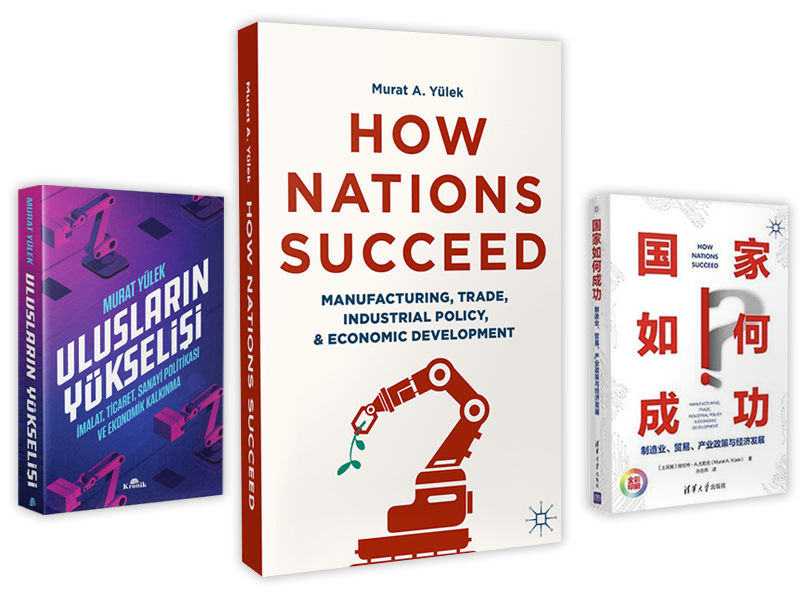About the Book
Why are some nations rich and others poor? This is a question that has challenged economists for centuries. A definite answer would satisfy a lot of them—and make poor nations rich. Murat Yulek’s answer to that question is manufacturing and industrial policy. With the help of pertinent case studies, both historical and contemporaneous, How Nations Succeed lucidly demonstrates how manufacturing made economies flourish and why it is vital for economic development. The cases span the globe including the development of South Korea’s nuclear power program and automobile industry, Sweden’s Saab and Europe’s Airbus aircraft projects, Britain’s colonial expansion and industrial policies before and after the Industrial Revolution, the effects of ‘unequal’ trade treaties on Japan’s development in the Meiji period, and Colbert’s industrial policies in 17th century France.
Industrialization was never an accident but an outcome of a well- crafted industrial policy. Analyzing the capacity and limits of the (developmental) state in the industrialization process and in economic development in general, the book sheds light on how today’s governments can design industrial policy and how they can identify strategic sectors to break out of Low and Middle Income Traps. The capacities of the state and the industrial layer (industrial firms and entrepreneurs, industrial labour and managers and industrial finance) determine the outcomes of industrial policy. Industrialization is not a mere construction of factory buildings but a sophisticated capacity and skill building process enabled by industrial policy. Explaining technical concepts in understandable terms, the book introduces a stylized industrialization process in four stages and locates different countries on the process map.
The book illustrates how picking-the-winner type industrial policies have worked in different countries. It also discusses how industrial policy and science, technology and innovation policies should be sequenced for best results. As trade wars and (pre-mature) de-industrialization become the zeitgeist of today, the book illustrates the links between global (im)balances and economic development explaining export-led growth as well as import-led slowdowns.
This is an essential, forthright book for who wants to understand today’s economy, in particular for policy makers and for students focused on industrial policy, economic development, and trade.




